 Petzlover
Petzlover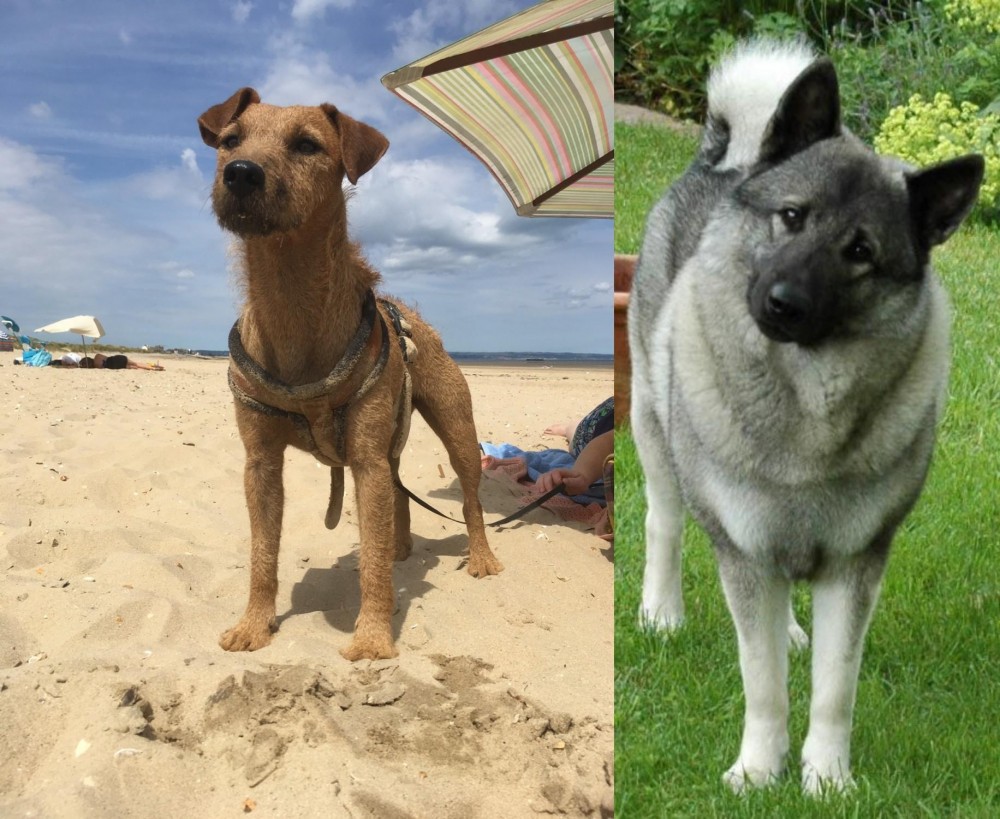 Fell Terrier is originated from United Kingdom but Norwegian Elkhound is originated from Norway. Fell Terrier may grow 17 cm / 6 inches shorter than Norwegian Elkhound. Fell Terrier may weigh 16 kg / 35 pounds lesser than Norwegian Elkhound. Both Fell Terrier and Norwegian Elkhound has almost same life span. Fell Terrier may have less litter size than Norwegian Elkhound. Both Fell Terrier and Norwegian Elkhound requires Moderate Maintenance.
Fell Terrier is originated from United Kingdom but Norwegian Elkhound is originated from Norway. Fell Terrier may grow 17 cm / 6 inches shorter than Norwegian Elkhound. Fell Terrier may weigh 16 kg / 35 pounds lesser than Norwegian Elkhound. Both Fell Terrier and Norwegian Elkhound has almost same life span. Fell Terrier may have less litter size than Norwegian Elkhound. Both Fell Terrier and Norwegian Elkhound requires Moderate Maintenance.
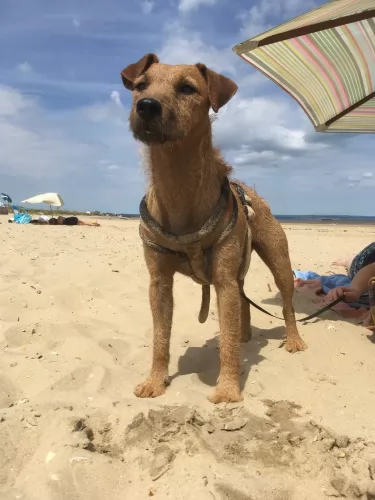 Fell terriers, known by other names such as Lakeland-, Patterdale-, Red Fell or Black Fell Terrier are small working terriers, hailing from the fell or hilly country of northern England.
Fell terriers, known by other names such as Lakeland-, Patterdale-, Red Fell or Black Fell Terrier are small working terriers, hailing from the fell or hilly country of northern England.
Several breeds have been developed from the Fell terrier, of which the Patterdale Terrier, Lakeland are some as well as other locally developed breeds. All these particular breeds are sometimes referred to as the Fell Terrier, and in fact the National Terriers Club LLC has published a Fell Terrier standard.
It is also believed that the long legged Fell Terriers may have descended from an old type of terrier referred to as the rough-coated Black and Tan. The Black and Tan Terrier is now extinct but was drawn into The Kennel Club as the Welsh Terrier.
 The Norwegian Elkhound is an ancient spitz-type dog breed hailing from Norway and with a history that goes back thousands of years.
The Norwegian Elkhound is an ancient spitz-type dog breed hailing from Norway and with a history that goes back thousands of years.
These dogs have been used as hunting dogs and have been able to bring down game such as Elk, bears, wolves, badgers and reindeer. They have also been used to guard livestock.
The Norwegian Elkhound was recognized by the American Kennel Club in 1913.
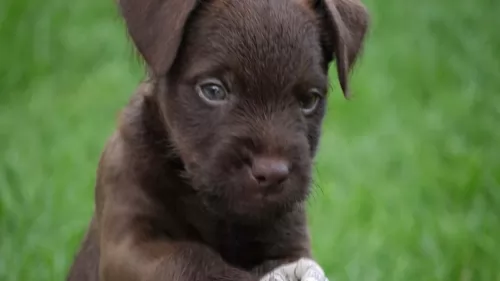 Small and feisty, the Fell Terrier is a working dog used for hunting purposes. He stands at roughly 31cm to 38cm in height and ways between 6 to 9kg.
Small and feisty, the Fell Terrier is a working dog used for hunting purposes. He stands at roughly 31cm to 38cm in height and ways between 6 to 9kg.
The dogs were sought after for their hunting skills as being the small dog they were, and with their narrow chests, they were able to move around in small, narrow underground tunnels.
The Fell has long legs, and his coat is shortish but with a rough texture to it. The coat is found in different colors such as white, black and tan, chocolate, red, black and bronze. The ears are medium length and floppy while the tail of the dog is traditionally docked, but these days the tail is often left long, and then he becomes less distinctive.
Used to having hunted in packs, the Fell Terrier has always been used to getting along well with other dogs. He makes a fantastic family pet and will get on well with children who have been been taught to respect animals. He is an independent, strong-willed dog and will certainly need socialization and training to turn him into an obedient dog.
He is energetic, fearless, strong-willed, determined and always ready for a game or some form of action.
 The Norwegian Elkhound is a medium to large sized dog standing at roughly 45 to 55cm in height and weighing anything fro 18 to 25 kilogams.
The Norwegian Elkhound is a medium to large sized dog standing at roughly 45 to 55cm in height and weighing anything fro 18 to 25 kilogams.
People love this dog because of his beautiful wolf-like face and bright eyes. The head is broad and wedge-shaped, the eyes dark brown, the ears stand erect and the bush tail curls over the dog's back.
The double coat has different shades of gray and silver with cream and white shades on the undercoat.
He is a moderate shedder with some seasonal shedding.
The Norwegian Elkhound is a high energy dog who loves to be busy and he also makes a loving and loyal companion towards his human family. He tends to be a little bit reserved around strangers.
He is an independent dog so so its a good idea to have him trained and socialized so that he is always obedient. He is an intelligent dog so you won’t battle to teach him.
He gets on well with children in the home. He however, can be a little bit aggressive with other dogs, but not if he was brought up with them as a puppy. Adventurous and active, he just loves spending time outdoors. It's why he is best suited to life in the countryside as opposed to the city and also prefers cooler climates.
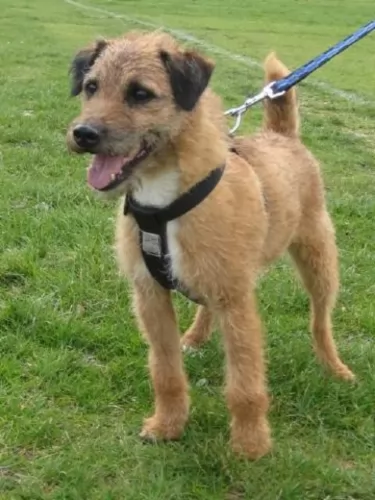 The Fell Terrier still has dreams of the hunt in him and with his strong prey instincts, he isn’t really suited to city living, but will fit ideally into life in the country.
The Fell Terrier still has dreams of the hunt in him and with his strong prey instincts, he isn’t really suited to city living, but will fit ideally into life in the country.
He is a high spirited, working dog with an endless amount of energy. He bonds closely with his human family, and for all his robust, larger-than-life attitude and boldness, when he is with his human family he can be gentle, calm and loving, just thriving on the love he receives.
Your Fell Terrier is just waiting to be your best friend and a never ending source of unconditional love.
 Your Norwegian Elkhound makes an awesome pet. He is full of the joys of living and wants to be an active member of his human family.
Your Norwegian Elkhound makes an awesome pet. He is full of the joys of living and wants to be an active member of his human family.
He is active and always ready for some fun and games. He is also intelligent and will make an even better pet when he has been trained and socialized.
Those who have owned one of these beautiful dogs will always say how they adore this beautiful, smart, loving canine friend of theirs.
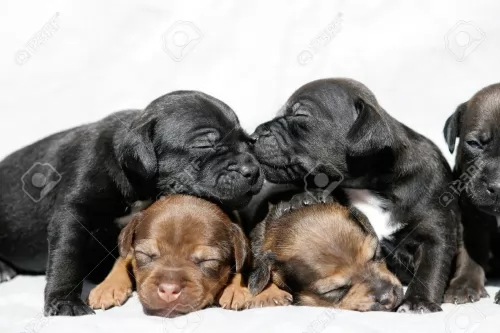 Caring for your Fell Terrier requires knowing what do do with him when he develops certain common dog illnesses. He is a robust dog and is not likely to get any serious illnesses, but still you want to know about some of the more common ones.
Caring for your Fell Terrier requires knowing what do do with him when he develops certain common dog illnesses. He is a robust dog and is not likely to get any serious illnesses, but still you want to know about some of the more common ones.
If you suspect an illness, get your pet to the vet who can provide you with a treatment plan for your dog.
Your Fell Terrier can easily fall prey to dental disease if you don't brush his teeth at least 2 or 3 times a week. Unfortunately bad teeth isn't just a case of losing a tooth or two, bad teeth can cause serious diseases such as kidney disease. Tarter build-up progresses to infection of the gums as well as roots of the teeth. So serious is dental disease that your dog can actually have his life shortened.
Your Fell Terrier is a small dog and obesity can easily creep up if you don't control your pet's diet. Obesity is a serious illness that can increase problems with the joints and digestion.
 Your beautiful Norwegian Elkhound can reach 15 years of age if you look after him well and he manages to avoid some of the common dog diseases there are.
Your beautiful Norwegian Elkhound can reach 15 years of age if you look after him well and he manages to avoid some of the common dog diseases there are.
There are some dog illnesses that are good to be aware of -
This is an eye condition where there is pressure that builds up in the eye. There is a problem with the drainage of fluid in the eye and this is what causes the pressure and there can be damage to the optic nerve.
This is a skin condition that causes inflammation and is often seen in dogs like the Norwegian Elkhound who have thick coats.
A common disease seen in many dog breeds, young and old, and which is a malfunction of the hip joints, causing problems with your dog’s mobility.
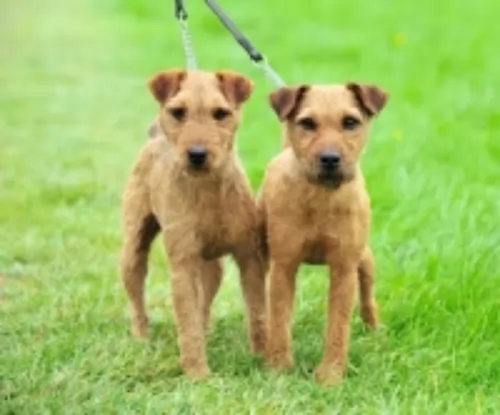 Your Fell Terrier is an active dog who won’t thrive if he is cooped up and ignored. He thrives on action and will need to be taken on walks with you and involved in all your games and sports, such as when you go jogging, swimming or cycling.
Your Fell Terrier is an active dog who won’t thrive if he is cooped up and ignored. He thrives on action and will need to be taken on walks with you and involved in all your games and sports, such as when you go jogging, swimming or cycling.
Feed your Fell Terrier the best quality commercially manufactured foods if you opt to feed your pet this way. Include cooked brown rice, vegetables and chicken into his kibble from time to time and always ensure there is cool, fresh drinking water available to him.
It depends on whether your Fell Terrier has a short, smooth coat, or the longer-haired coarse coat. He will certainly need brushing twice a week and sometimes, with the longer coats, he may require professional trimming or stripping.
Always check nails, in and outside the ears and remember to brush his teeth with canine toothpaste and toothbrush twice a week at least.
 As a spitz type dog, the Norwegian Elkhound is an energetic dog who will need lots of physical activity.
As a spitz type dog, the Norwegian Elkhound is an energetic dog who will need lots of physical activity.
He has a very thick coat so make sure he doesn’t overheat during exercise as he has been used to living in wintry climates.
Your pet will shed some of that thick hair so he will need to be brushed at least twice a week to keep the coat in tip top condition. At the same time check him over for ticks and fleas. How often you see ticks on your dog will depend on where you live. These parasites attach to your dog and feed on his blood.They are capable of causing many diseases in your pet, one of which is Lyme disease, a disease which can lead to arthritis and swelling with your dog’s joints.
The best way to prevent any disease from weakening your pet is to get him to the vet as soon as possible. A good way to prevent ticks is to speak to your vet about tick control products.
Make sure he has the best food to ensure health and happiness. Keep his meals simple – no exotic, spicy foods that can upset his stomach.
A high quality kibble brand for energetic dogs is a wise choice and some tasty home-made food added in occasionally. This can be boiled chicken, brown rice and vegetables. Never leave him without a constant supply of fresh, cool water.